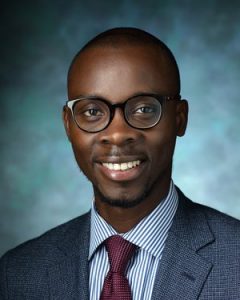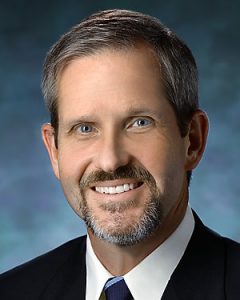Johns Hopkins UniversityEst. 1876
America’s First Research University

As a student at the Rutgers Robert Wood Johnson Medical School, New Jersey native Yesha Parekh spotted a social media post highlighting the Johns Hopkins Department of Orthopaedic Surgery’s Diversity Scholarship. She applied for and received the scholarship, which supported her orthopaedic surgery sub-internship at Hopkins last summer.
“Those four weeks on my sub-internship were full of moments where I was able to learn not only from the faculty and residents but also from the patients I interacted with in clinic and during the perioperative period (the time around surgery),” Parekh says. “The Orthopaedic Surgery Diversity Scholarship gave me the opportunity to gain exposure to orthopaedic oncology and find amazing mentors and role models in the faculty and residents I worked with. I am extremely grateful for the experience I received through the Diversity Scholarship because it truly changed my career trajectory and allowed me to see orthopaedics in a different light.”
Now, Parekh is beginning her five-year residency in orthopaedic surgery. She credits her experience with the Diversity Scholarship with driving her decision to return to Hopkins as a resident.
“The culture of the Johns Hopkins Orthopaedic Surgery Residency Program is truly phenomenal,” Parekh says. “It is inspiring to see individuals of diverse backgrounds and schools of thought come together and be committed to providing excellent patient care as well as making each other a better physician and person.”

Though women comprise half the U.S. population, they make up just 14% of orthopaedic surgery trainees. Black and Hispanic doctors are similarly unlikely to join the orthopaedic resident pool, with the groups representing 4% and 3% of candidates, respectively, despite being 13% and 18% of the population.
“Orthopaedics has not been a very diverse field historically,” explains Julius Oni, MD, the director of the Johns Hopkins Hip and Knee Replacement Fellowship, an assistant professor, and the chair of diversity for the department. “If you cannot see yourself in a specialty — if you cannot see other women in a specialty, if you cannot see other Black people in a specialty, if you cannot see other Hispanic people in a specialty — then it becomes difficult for you as an undergraduate student or as a medical student to picture yourself as someone in that specialty.”

To help young doctors envision themselves in orthopaedic surgery and create a pipeline of candidates from all backgrounds, several faculty members in the department provided personal donations to establish the Diversity Scholarship program. The annual scholarships provide fourth-year medical students $500 to cover registration fees and a $500 stipend for the month-long rotation.
“Orthopaedic surgery is the least diverse specialty within medicine,” says James R. Ficke, MD, the Robert A. Robinson Professor and the director of the Department of Orthopaedic Surgery. “The faculty and I are committed to better balancing our profession to better reflect our patients, and this is a way to have a direct impact.”
The Diversity Scholarship also pairs students with a faculty mentor to work with them during their time at Hopkins. One of the goals, Oni says, is to attract the best and brightest and encourage them to view Hopkins as an environment where they can thrive, not just survive, residency.
And while the scholarship is aimed at building a pool of orthopaedic residents with a variety of backgrounds and experiences, Oni adds it has the potential to positively impact the specialty far beyond Hopkins.
“We know that when we have a diverse organization there’s improved creativity, productivity, and camaraderie. Everybody learns better and learns more, and we are able to see other perspectives that may be able to enrich our perspectives,” he says. “More importantly, if we truly care about our patients, then our workforce needs to represent the patients.”
Topics: Friends of Johns Hopkins Medicine, Johns Hopkins Medicine, Support Scholars